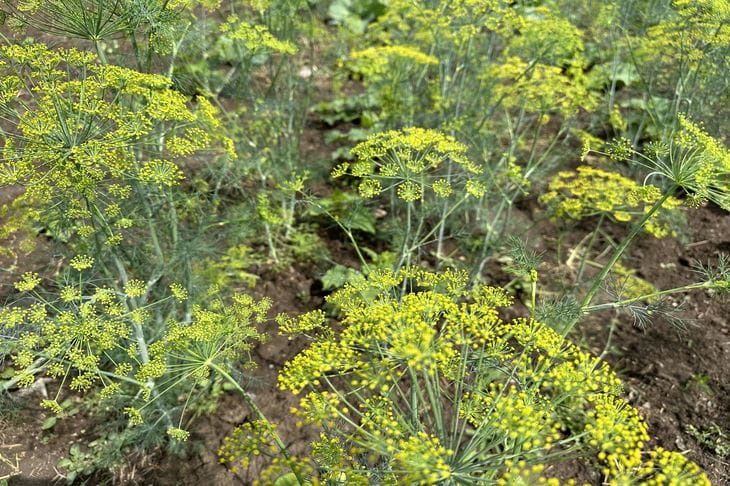What you can't sow next to dill: secrets of a successful garden
Dill is one of the most popular herbs used in cooking and medicine. But what if your dill isn't growing as well as you'd like?
The problem may be the wrong neighbors. The right combination of plants is the key to a healthy and productive garden.
It is important to know which plants should not be planted next to dill and why this is so important for your garden.
Why Neighborhood Matters
Plants, like people, need favorable conditions to grow. Some crops can have a negative impact on each other by competing for nutrients, light, and water.
Incorrect proximity can lead to growth inhibition, reduced yields and even plant diseases.

Dill, despite its unpretentiousness, has its "enemies" with whom it is undesirable to share a garden bed.
Cucumbers and dill
One of the most famous examples of incompatibility is the combination of dill and cucumbers. Cucumbers are sensitive to substances secreted by dill.
As a result, their growth may slow down and their yield may decrease. If you want to grow both of these plants, it is better to place them in separate beds.
Carrots and dill
Carrots are also not the best neighbors for dill. Although these plants have similar soil requirements, dill can inhibit carrot growth, creating competition for resources.
This is especially important to consider if you plan to grow a large crop of carrots. The best solution is to separate these crops into different areas of the garden.
Pepper and dill
Pepper is another "incompatible" neighbor with dill. Substances secreted by dill can negatively affect the growth and development of pepper.
In addition, peppers require more sunlight and heat, which dill can "cover".
If you want to get a good harvest of peppers, avoid planting them next to dill.
Plants of the cabbage family
Cabbage, broccoli, cauliflower and other members of this family are also not the best neighbors for dill.
These plants can compete with dill for nutrients and moisture.
In addition, dill can attract pests that attack cabbage plants. To avoid these problems, it is better to place dill and cabbage crops in different beds.
Aromatic herbs
While it may seem like all aromatic herbs should get along well together, this is not always the case. For example, dill and fennel are bad neighbors.
They compete for the same nutrients and can outcompete each other. To ensure successful growth of these plants, it is best to keep them away from each other.
Knowing which plants should not be planted next to dill will help you avoid many problems in the garden.
By taking into account the needs and characteristics of each plant, you can create a harmonious and productive garden where each plant will grow and develop in the best conditions.
Previously, a secret July feeding for beets was named.

